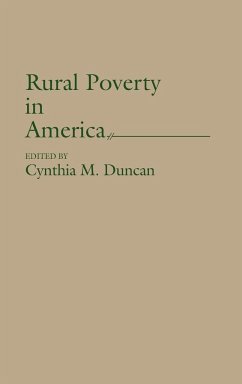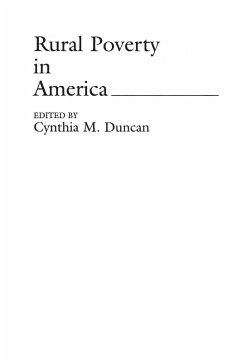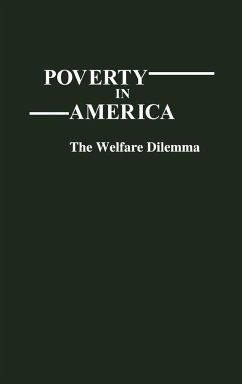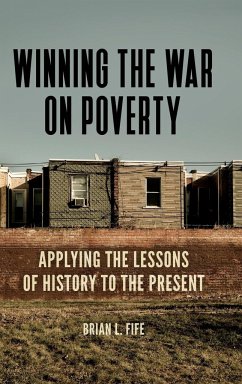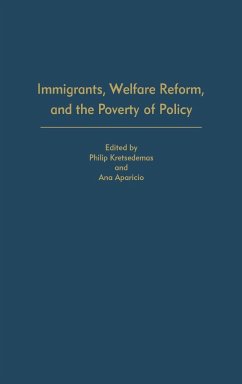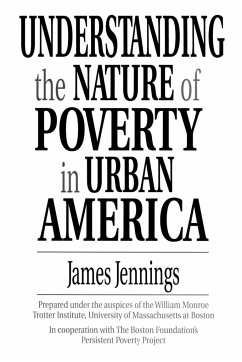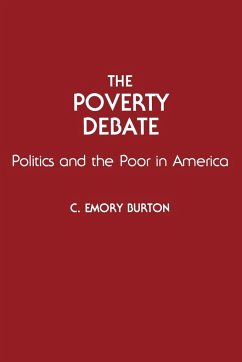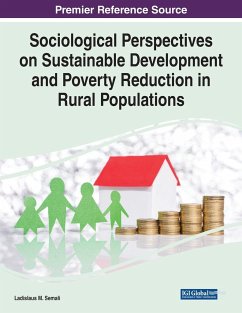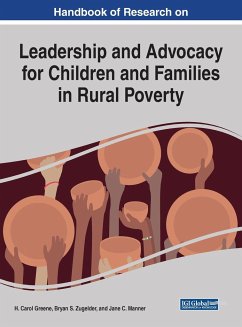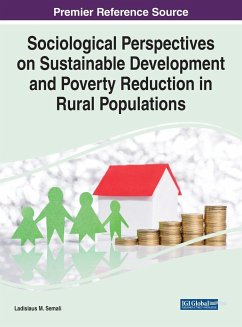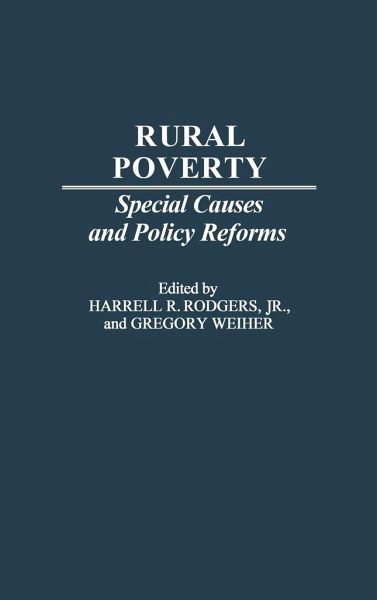
Rural Poverty
Special Causes and Policy Reforms
Herausgeber: Rodgers, Harrell R. Jr.; Weiher, Gregory
Versandkostenfrei!
Versandfertig in 1-2 Wochen
70,99 €
inkl. MwSt.

PAYBACK Punkte
35 °P sammeln!
This volume takes the unexplored and timely approach of studying the differences between the rural and urban poor. The studies presented conclude that rural poverty is more likely than its urban counterpart to be caused by inadequate unemployment compensation, rising unemployment, depression in the agricultural sector (the farm crisis), and discriminatory welfare regulations. As well as establishing the differences, the contributors elucidate the alternate strategies necessary to reach this less visible but equally needy group. They also suggest alternate reforms designed to mitigate poverty i...
This volume takes the unexplored and timely approach of studying the differences between the rural and urban poor. The studies presented conclude that rural poverty is more likely than its urban counterpart to be caused by inadequate unemployment compensation, rising unemployment, depression in the agricultural sector (the farm crisis), and discriminatory welfare regulations. As well as establishing the differences, the contributors elucidate the alternate strategies necessary to reach this less visible but equally needy group. They also suggest alternate reforms designed to mitigate poverty in rural America. Inequitable treatment of the rural poor is evidenced by the fact that although, by conventional measures at least, poverty rates are higher in rural than in urban regions of this country, the rural poor are far less likely to receive assistance. One significant reason is that the rural poor are more often employed and more likely to have assets that make them ineligible for benefits. This is only one of several indications that rural poverty requires specifically tailored programs to address its unique causes and problems. The work begins with an examination of ways of measuring poverty and goes on to look at the utilization of welfare programs. Two essays are then devoted to the role of the labor force. The work concludes with three approaches to reform. An index and a bibliography complete the volume, which will provide fresh research and insights for courses in poverty, rural sociology, and rural economic development.



